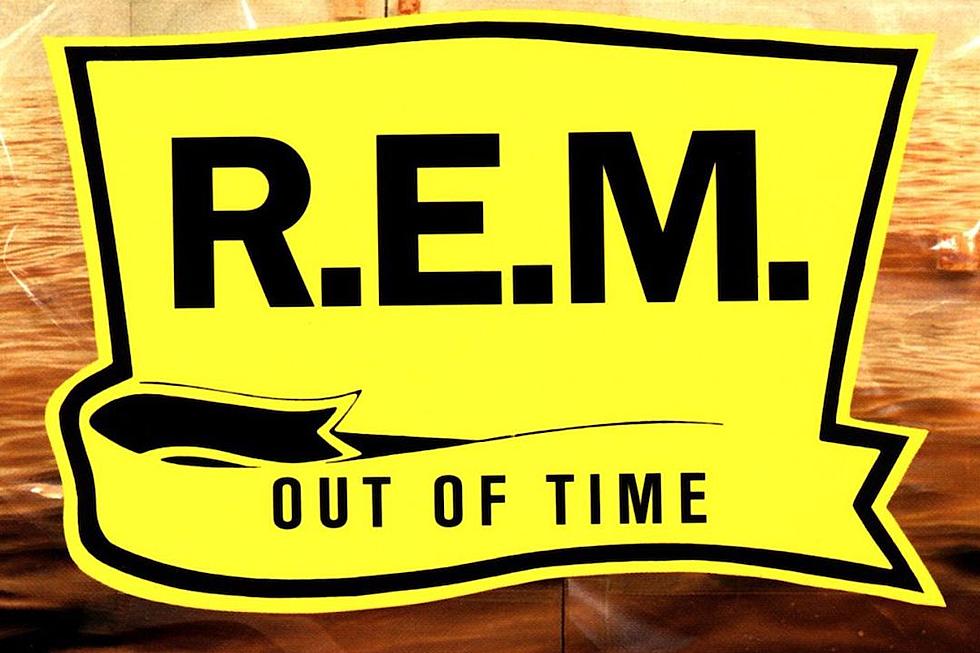
33 Years Ago: R.E.M. Release Their Subversive and Immersive Debut, ‘Murmur’
A quarter-century ago, R.E.M. grew from biggest fish in the small pond of Athens, Ga. to whales in the vast ocean of popular music. The vehicle that propelled them from the indie underground was 1991's Out of Time and the unlikely hit, "Losing My Religion," which remade alternative music in R.E.M.'s image. And it was good. Amen.
Of course, "Losing My Religion" wasn't really about religion, at least not explicitly. Rarely since the band's 1982 debut EP, Chronic Town, did most R.E.M. songs bear strict, linear meanings in the manner of, say, a John Mellencamp song. And while most of mainstream America thought R.E.M. were "new" in the early '90s, Out of Time was already the band's seventh album and those cryptic lyrics were significantly more coherent than those on their hugely influential 1983 debut full-length, Murmur.
Everything about the album is abstruse, starting with the cover: the dense patch of kudzu on its front sleeve, the lack of names accompanying the band photos on its back. The inner sleeve identified the band only as "Bill, Michael, Peter, Mike," and even that was a leap of faith – there was no "R.E.M. is..." tag or anything like that. In a pre-internet world, album sleeves and liner notes were all a new listener had to go by, and R.E.M. weren't giving up any secrets.
And then there's the band's name. It's at once both evocative and nonsensical: R.E.M. stands for Rapid Eye Movement, which is a state of sleeping that produces the most vivid dreams. The album title also suggested without suggesting. "We're not going to spell it out for you," the package seemed to say. "We'll just murmur a little bit and let you come to your own conclusions."
And murmur they did. R.E.M.'s early catalog is catnip for fan's of mondegreens, those misheard lyrics that leave us wondering why Jimi Hendrix wanted us to "'scuse me while I kiss this guy" or Elton John pined to "hold me closer, Tony Danza." Murmur's opening track, "Radio Free Europe," served notice to the band's college radio competition that they could stick it "straight up the butt / we're too good," or more likely displayed an impressionistic bit of narrative with "straight off the boat / where to go." Did "Pilgrimage" assert that your love was a two-headed cow or your luck was a two-headed cow, and how could either be a two-headed cow, anyway?
Frontman Michael Stipe was no more than 20 years-old when some of Murmur's lyrics were written. Novelist Kurt Vonnegut was fond of pointing out that writing is the one art that one can't fake as a young person; writing well requires life experience. That explanation, bundled with young Stipe's shyness and insecurity, became the de facto explanation for Murmur's murmured lyrics.
While plausible, that kind of criticism serves as a bit of a head pat. It's a sort of "look at the little New Waver trying to write lyrics. Isn't that precious" sentiment that diminishes the fact that Stipe was an art student at the University of Georgia. Rather than imply that he was a young man intimidated by his chosen craft, one can approach Murmur's lyrics as quick, impressionistic brushstrokes. Stipe never spells out what exactly is "West of the Fields," but implies what lies beyond. Sometimes what looks amateurish to a critic is a conscious artistic choice, after all.
Eight years prior to their breakout hit, religion already swirled around R.E.M.'s music. Blame it on location: Athens lies at the heart of the bible belt where there's a density of churches unrivaled elsewhere in the country. Guitarist Peter Buck actually lived in a deconsecrated Episcopal church during the band's early days, which also served as R.E.M.'s first practice space and the site of their first show: a birthday party for a friend attended by 300 people.
Or you can blame it on genes. Stipe's grandfather was a Methodist preacher – the religion that was the zeitgeist of the Reagan era with its rising fundamentalist Christian base. Either way, in January 1983, the band packed up their gear and headed for North Carolina's Reflection Studios to record their debut album. Reflection, coincidentally, was a studio popular with gospel acts. R.E.M. laid down 12 classic tracks splattered with religious imagery that aren't necessarily religious. Suggesting that Stipe intended his lyrics to be or mean something specific is to commit a textbook intentional fallacy. Only the writer knows what he intended, but what one can assert with confidence is that he drew liberally from the lexicon of religion.
Is the journey undertaken in "Pilgrimage" a religious expedition or a non-secular journey? The answer lies not with the singer but the listener. The title and the song's lyrics reference speaking in tongues as evocative brushstrokes. The Lord's Prayer gets a brief run through in "9-9," and given what's going on around "Moral Kiosk," one can't help but smell the incense and candles inside.
The most overt use of religious imagery comes courtesy of "Talk About the Passion," a deceptively pretty song given its sharp lyrics. In Christianity, the Passion refers to the last days of Jesus Christ, the period between his return to Jerusalem and his crucifixion. This is arguably the beating heart of the Christian faith and the portion of the Bible retold on every Sunday pulpit from the Vatican to the guy waving the John 3:16 sign at football games. Stipe seems to question those preachers' sincerity, though, in biting lines like "Empty prayer empty mouths talk about the Passion." Then again, maybe not. Perhaps "passion" here is lower case. Maybe those "empty mouths" are talking about romantic passion or artistic passion. All we have are the brushstrokes; as listeners we must find our own meaning.
For longtime fans, the breakthrough success of "Losing My Religion" in 1991 was no surprise. R.E.M.'s sound had already matured over the eight years separating that hit from Murmur, but the lyrical palette – the lexicon from which Stipe pulled his ambiguous lyrics – was firmly in place from the beginning. With three decades' distance and a formidable body of later work to consider, we can lay to rest the criticism that Murmur's lyrics were the random scribbling of a shy boy unsure of what he was doing. Instead, the album was the first bloom of young artists clearly in control of their chosen medium.
Worst to First: Every R.E.M. Album Ranked
More From Diffuser.fm









